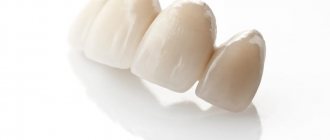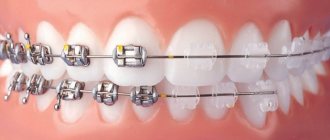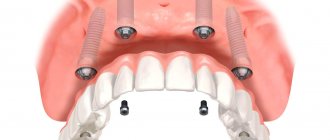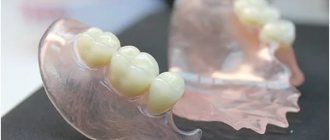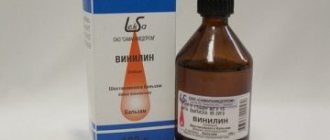Metal-ceramic crowns and fixed bridges simultaneously solve two problems - restoring the chewing function and eliminating the external defect. Due to their strength, availability and wear resistance, these structures are in increasing demand among the population and are often offered by dentists. Noble metal alloys (gold, palladium, platinum), as well as alloys of other metals (cobalt, nickel, chromium) are used as materials for the metal frame.
Our guarantees are 3 years for the frame and 1 year for ceramics
General characteristics of titanium crowns
Titanium is one of the metals on the basis of which non-removable orthopedic products are made in dentistry. These include single crowns (hollow “caps” covering the visible parts of the teeth) and bridges (consisting of at least 3 attachments). Sometimes the material serves as the basis for removable dentures, but for this purpose it is used less frequently.
What kind of doctor puts crowns on teeth?
Titanium is a traditional type of metal for fixed dentures. It has the following qualities necessary for orthopedic treatment:
- bioinertness – the material is compatible with body tissues and does not cause negative reactions;
- refractoriness;
- wear resistance and corrosion resistance.
Crowns are made on the basis of pure titanium or its alloy with molybdenum, aluminum, and vanadium. Sometimes gold plating is done on the inside of the prosthesis - this increases the structure’s resistance to corrosion processes and reduces the risk of bacterial plaque accumulation. And the outer side is lined with ceramics.
Titanium is a traditional type of metal for fixed dentures
Review of prices for titanium implants
Today, medical titanium is the best, but still not ideal, material for dental prostheses. Scientists continue to develop biotechnology. Soon, teeth will be grown from stem cells and transplanted to replace missing incisors, canines or molars.
Successful experiments in this area have already taken place in the USA and Japan. According to rough forecasts, by 2025 the new product will appear in dentistry. It will be possible to grow a new tooth in the alveolus of an old one in about 9 weeks. Until this happens, you can choose the best of what dental orthopedics offers - titanium implants.
Flaws
Titanium crowns have 3 key disadvantages:
- The impossibility of making a structure using the casting method. At temperatures above +800°C, titanium loses its properties. Therefore, prostheses are only milled from it. The technology is complex; it cannot be used to obtain crowns with a perfect marginal fit. A gap forms between the “cap” and its own tissues, where bacterial plaque accumulates.
- Poor adhesion to ceramics. Because of this, chips and cracks quickly appear on the outer part of the prosthesis. In addition, they use exclusively low-temperature ceramics, which are incompatible with other metals.
- Low aesthetics. Titanium-based bridges and crowns do not have the translucency of natural teeth. Therefore, they are not recommended to be placed on the anterior units - they look unnatural against the background of other incisors and canines. Also, low-temperature ceramics are inferior to conventional ones in terms of external characteristics.
In recent years, thin-walled titanium prostheses have been used. They are easier to mill, they better follow the anatomical features, and fit more tightly to the neck of the tooth and the gingival margin.
If the tooth is severely damaged, titanium dentures are not installed
Pressed ceramics
The material has all the advantages of ceramics, but is characterized by increased strength and, therefore, service life. In orthopedic dentistry, two types of pressed ceramics are used: E-max and Empress.
Empress ceramics are a combination of lithium disilicate and the mineral leucite crystals. These crowns are ideal for the frontal area. They are beautiful, natural, with an even, unchangeable color that completely replicates the natural shade of tooth enamel.
E-max or glass ceramic is made from lithium disilicate. It has a natural appearance and extreme resistance to stress and wear. Therefore, crowns can be installed both on the front teeth and in the chewing area.
Indications for installation
Typically, a titanium dental prosthesis is recommended for replacing severely damaged or lost units, restoring chewing and aesthetic functions. In addition to these reasons, the structure is installed when:
- insufficient mineralization of teeth, increased abrasion;
- hypoplasia (insufficient development), aplasia (congenital absence of a unit or part thereof) and dysplasia (improper formation of the coronal part) in children;
- injuries, chips and cracks;
- severe tooth decay - if it occupies half the contact area or 2/3 of the height;
- replacement of prosthetic structures made of other materials - as a result of their breakage or repeated treatment of abutment teeth.
The only contraindication is severe tooth decay, in which the root system cannot be preserved. Also, in children, it is not recommended to have prosthetic jaw rows until the units have completely erupted.
How are the manufacturing and installation process?
The titanium frame is made using CAD/CAM technology - computer modeling of the prosthesis, followed by milling from a single block using an automatic installation.
The titanium frame is made using CAD/CAM technology
Otherwise, the production of a dental structure is no different from the creation of other prostheses. It happens in several stages:
- diagnostics - X-rays are used to determine the condition of soft and hard tissues, the presence or absence of inflammatory processes;
- sanitation of the oral cavity - as necessary;
- if necessary, depulpation of the tooth under the crown or repeated endodontic treatment;
- turning the tooth for a prosthesis or, in case of severe destruction, restoring the coronal part with a stump insert - it is also made of titanium;
- taking impressions and making diagnostic impressions;
- fitting and fitting of orthopedic structures;
- if the product is suitable, it is lined with ceramics of a suitable color;
- securing the crown with bond (cement) at the last visit.
Prosthetics take 2-6 weeks. The duration depends on the number of teeth being replaced and the volume of preliminary procedures: treatment of caries, extraction, depulpation, etc.
After installation, the orthopedic dentist prescribes 1-2 follow-up visits. On them, the doctor evaluates how the prosthesis fits. The patient’s task is to report possible discomfort or strange sensations.
After installing the crown, you will need to visit the doctor 1-2 more times.
Operating principle
The main area of use of titanium crowns is the restoration of the full functionality of the dentofacial apparatus in situations where therapeutic treatment methods are not able to solve the problem. Most often this happens when a previously pulpless tooth begins to gradually decay. Deprived of nutrition, it becomes fragile, its walls become thinner, and sooner or later damage occurs that cannot be repaired by filling.
Representing a kind of case, a titanium crown fits tightly onto the tooth, replacing the destroyed crown part and thereby restoring full functionality. A carefully fitted and correctly installed prosthesis fits closely to the dental tissues, providing:
- protection against the penetration of infectious pathogens;
- strengthening the chewing surface;
- prevention of dystrophy and further destruction of natural dental tissues;
- protection from mechanical, thermal and chemical damage to the tooth;
- restoration of a full smile.
After installing titanium crowns on the teeth, the patient can use the dental apparatus without any restrictions.
What are the service life and care recommendations?
Titanium crowns are the most durable. Judging by the reviews, they last at least 12 years. And with proper care, the service life reaches 15-20 years.
The service life of the prosthesis itself is indicated with ideal pre-treatment. If the dentist missed inflammatory processes, did not eliminate carious lesions, or poorly obturated the root canals, there is no point in hoping for a long “life” of the structure.
How long titanium dentures last also depends on the patient and how carefully he maintains oral hygiene. Recommend:
- brush your teeth at least twice a day, ideally after every meal;
- clean not only the crowns, but also the tongue, the inside of the cheeks, and gums from plaque;
- use dental floss, brushes or an irrigator to clean the interdental spaces;
- at the end of each cleaning, rinse your mouth with disinfectant solutions;
- if it is not possible to fully brush your teeth, use a mouthwash, floss, or chewing gum - they will eliminate some of the bacterial plaque and food debris;
- undergo a dental examination every six months;
- Remove plaque and stone 1-2 times a year.
Another tip is not to overload the teeth under dentures: evenly distribute the load when chewing on both sides, do not chew hard objects, etc.
Titanium-based crowns are the most durable of all, they can last more than 10 years
Services of our clinic
The goal of our activity is an impeccable aesthetic result, restoration of chewing function and full sensation of your teeth. Our specialists monitor advanced developments and technologies in the field of implantology.
Therefore, premium, middle and economy class titanium dental implants are used. The differences between them lie in some nuances not related to quality. Dental implantation provides many options:
- preservation of adjacent teeth;
- long-term service life;
- aesthetic appeal - externally, an artificial structure cannot be distinguished from a real tooth;
- tight fixation in the bone, allowing titanium dental implants to withstand heavy chewing loads;
- installation at an affordable price in Moscow;
- simplicity in daily hygiene care.
The cost of installing turnkey crowns in Moscow
Titanium prostheses are relatively inexpensive. They are at least 1.5-2 times cheaper than metal-ceramic crowns. So, the average cost in Moscow dentistry is as follows:
- 3,000 – 4,500 rubles for a crown made of titanium alloy with aluminum, molybdenum or vanadium;
- 6,000 rubles per unit of pure titanium;
- 6,500-7,000 rubles for a prosthesis with internal gold plating.
The prices shown are for titanium crowns with ceramic lining. Additional costs (treatment, production of a stump inlay, plaque removal, etc.) are calculated individually.
Titanium-based crowns are the best option if you need strong, durable and inexpensive prostheses. They are suitable for replacing and restoring molars and premolars. But it is recommended to install structures made of zirconium dioxide or solid ceramics in the smile area - they look more natural.
Reviews
If you have already been able to evaluate the products from your own experience, or you have something to say about the shortcomings of titanium structures, then we will be glad to see your feedback.
Maybe your opinion will help patients who are just preparing for prosthetics decide.
If you find an error, please select a piece of text and press Ctrl+Enter.
Tags dental crowns fixed dentures titanium crowns
Did you like the article? stay tuned
Previous article
Reasons for performing and expected results of flap surgery on the gums
Next article
When treatment is powerless or everything about the removal of baby teeth in children
Common Patient Questions
What are provisional crowns? Provisional crowns are structures installed during the production of permanent structures. The purpose of such crowns is to protect the living pulp and tissues surrounding the tooth from temperature and mechanical influences, prevent tooth movement and, of course, the aesthetic comfort of the patient. Provisional crowns are usually made of plastic on the day of tooth treatment or the next day.
What to do if a tooth hurts under the crown? Each case requires an individual approach. If the crown is placed on temporary cement (the first two months after prosthetics), it is removed and the tooth is treated endodontically. If the crown is permanently cemented and there are no signs of poor fit, then the tooth can be treated through the crown. Another possible treatment option is to remove and redo the crown.
Where to install metal ceramics
Dentistry at Technopark offers its patients the installation of titanium-based ceramic prostheses. Our specialists have been engaged in this type of prosthetics for a long time and have achieved great success in this. Patients who contacted us at least once became our regular clients. No wonder. In our work we use the most modern materials, innovative technology and new, recently developed techniques. All this allows us to position our network of clinics as high-quality, modern and convenient.
The network of the Dentistry at Technopark clinic guarantees the precise production of titanium-based metal-ceramic prostheses and their installation by professionals. Our specialists do their work quickly and efficiently. Employees can install one prosthesis, several or an entire row of teeth. All work is guaranteed. Dentistry at Technopark will solve the most complex problems even in the most complex and advanced cases. Call, sign up for a consultation, come and make yourself smile!
{SOURCE}
General overview
Before proceeding with the characterization of the metal itself, it is necessary to understand the very concept of “crown”.
In dentistry, a “crown” is a special prosthesis that is produced by dental technicians in a laboratory. It must cover the entire visible surface of the tooth, which cannot be said about veneers or fillings. The fixation process takes place using dental cement.
The main task of the products is to completely restore the chewing or articulatory function of the tooth. Crowns are also used to correct the anatomical shape of the dentition.
Titanium crowns differ from other metal prostheses in their affordability, relative ease of installation, strength and durability.
According to experts , titanium dentures with normal oral care can last at least 15 years.
Of course, we cannot help but remember the aesthetic feature of the products; they are not at all similar to a natural tooth, but thanks to innovative coatings, an excellent result is achieved.
If we look at the metal itself in more detail, titanium has a number of features:
- Quite an expensive acquisition process.
- Presence of bioinertness.
- High refractoriness.
- High resistance to the negative effects of corrosive processes.
- Hardness.
- Requires special tools and equipment for processing.
- It can be produced in the form of alloys with aluminum, vanadium, and molybdenum.
Such multifaceted characteristics are quite in demand in dental orthopedics.
The amazing effect of titanium in dentistry
The highest strength, resistance to aggressive environments, non-toxicity, biological compatibility, low specific gravity, non-magneticity and availability have made titanium one of the most popular materials in modern dentistry.
Until recently, this metal was used by dental technicians only to impart a white color to plastic prosthetic structures. However, in recent years, titanium has increasingly begun to be used in orthopedics for the manufacture of reliable, durable and aesthetic dental crowns.



